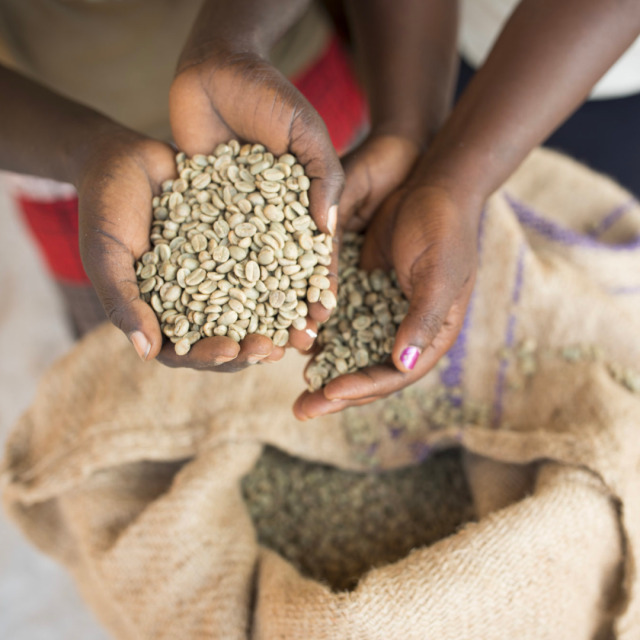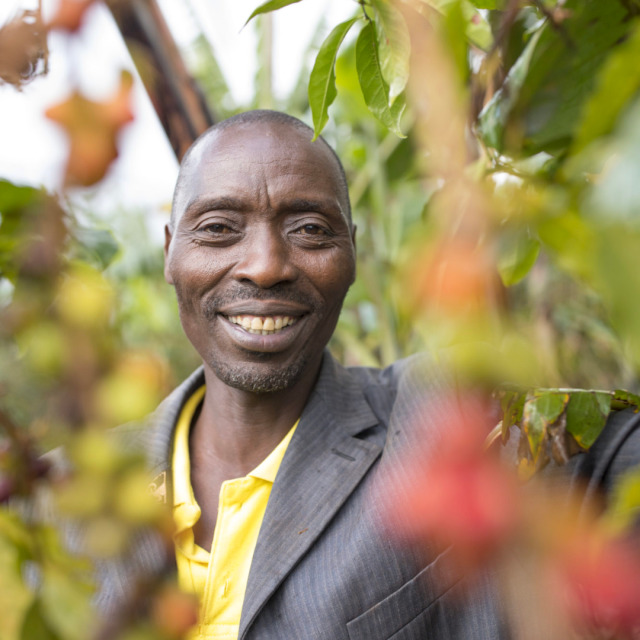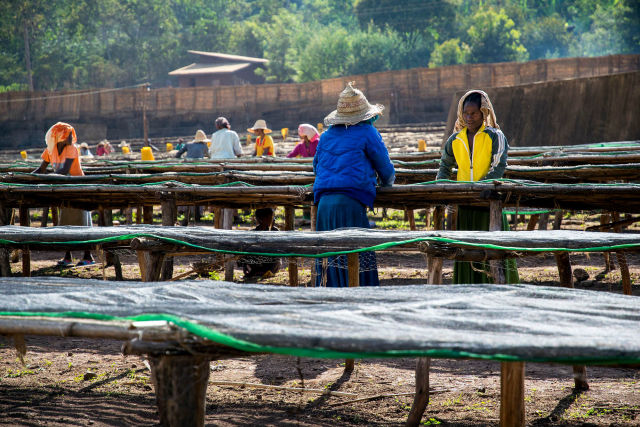Rising Demand for Premium and Specialty Coffee at Home
In recent years, the landscape of coffee consumption has undergone a significant transformation. The once ubiquitous drip coffee and instant coffee culture have given way to a burgeoning market for premium and specialty coffee experiences, especially within the comfort of one’s home. As consumers become more discerning about their coffee choices, a wave of enthusiasts is investing in high-quality beans, sophisticated brewing equipment, and a deeper understanding of the intricate world of coffee. This article explores the factors driving the rise of premium and specialty coffee at home and how this shift reshapes how we perceive and enjoy our daily cup of joe.

Shift in Consumer Preferences
The demand for premium and specialty coffee at home is partly a reflection of evolving consumer preferences. Modern coffee enthusiasts are unsatisfied with a caffeine fix; they seek a sensory experience beyond the conventional. This shift can be attributed to a growing appreciation for coffee beans’ nuanced flavors, aromas, and origins. Consumers are more willing to explore diverse coffee profiles, including single-origin beans, artisanal roasts, and unique processing methods.
The Trend of Home Brewing
One of the driving forces behind the rise of premium and specialty coffee at home is the increasing popularity of home brewing. As people spend more time honing their culinary skills and seeking unique gastronomic experiences, coffee has become a natural extension of this trend. Home brewers are investing in high-quality coffee beans sourced from renowned regions worldwide, experimenting with various brewing methods, and embracing the artistry of crafting the perfect cup.

Technology’s Role in Elevating the Home Coffee Experience
Advancements in coffee brewing technology have played a pivotal role in elevating the home coffee experience. From precision grinders to state-of-the-art espresso machines, technology has made it easier for enthusiasts to replicate the precision and quality achieved by professional baristas. Smart coffee makers and connected devices enhance the brewing process, allowing users to control parameters such as water temperature, extraction time, and coffee-to-water ratios precisely.
Emergence of Specialty Coffee Subscription Services
Another key driver of the home-coffee revolution is the proliferation of specialty coffee subscription services. These services directly deliver freshly roasted, high-quality beans to consumers’ doorsteps, providing a convenient and curated coffee experience. By subscribing to these services, consumers access a rotating selection of beans, often sourced from different regions, each with its unique flavor profile. This model not only caters to the demand for convenience but also encourages consumers to explore a variety of coffee offerings.
The Rise of Coffee Education
An informed consumer is a powerful force, and the growing interest in premium and specialty coffee at home has spurred a parallel rise in coffee education. Enthusiasts are delving into the intricacies of coffee cultivation, processing, roasting, and brewing. Online platforms, workshops, and coffee events have become valuable resources for individuals eager to enhance their understanding of the beverage. As consumers become more knowledgeable, they develop a heightened appreciation for the craftsmanship of producing exceptional coffee.

The Impact of Social Media
Social media platforms have amplified the visual and social aspects of coffee culture. Instagram, in particular, has become a haven for coffee enthusiasts to showcase their brewing setups, share aesthetically pleasing images of coffee creations, and connect with a global community of like-minded individuals. The visually driven nature of social media has fueled the desire for aesthetically pleasing, premium coffee experiences at home. It has created a virtual space where enthusiasts can exchange brewing tips, discover new beans, and celebrate the art of coffee.
The Ethical and Sustainable Coffee Movement
The shift towards premium and specialty coffee at home is about flavor and aesthetics and ethical and sustainable consumption. Consumers are increasingly conscious of their coffee choices’ environmental and social impact. Specialty coffee often emphasizes fair trade practices, environmentally friendly cultivation methods, and support for local farmers. As consumers align their values with their purchasing decisions, the demand for ethically sourced and sustainably produced coffee continues to grow.
What’s Next?
While the rise of premium and specialty coffee at home presents exciting opportunities for consumers and the coffee industry, it also poses specific challenges. Affordability remains a concern, as high-quality beans and sophisticated brewing equipment can be relatively expensive. Additionally, the learning curve associated with mastering various brewing techniques can be steep for newcomers to the specialty coffee scene.
However, these challenges are also avenues for growth and innovation. As the market expands, manufacturers are responding by developing more affordable yet high-quality coffee products. The democratization of specialty coffee is underway, focusing on making premium coffee experiences accessible to a broader audience.

Will it Continue?
The growing premium and specialty coffee market at home reflects a cultural shift in how we perceive and enjoy our daily caffeine fix. It’s not just about a quick energy boost anymore; it’s about the experience, the craftsmanship, and the community surrounding the world of coffee. As consumers invest in better beans, advanced brewing equipment, and knowledge, the home has become a haven for coffee enthusiasts seeking the perfect cup.
The trajectory of this trend is poised to shape the future of the coffee industry, influencing how coffee is produced, marketed, and consumed. As the demand for premium and specialty coffee at home continues to rise, the industry will likely see increased innovation, accessibility, and sustainability, ensuring that the coffee culture becomes a diverse and inclusive space for all. So, whether you’re a seasoned home barista or just starting your journey into the world of specialty coffee, the possibilities for discovery and enjoyment are boundless. Cheers to the ever-evolving art and science of brewing excellence at home!
Everyday Coffee Roasters is an e-commerce providing fresh-roasted coffee delivered right to your doorstep, conveniently and safely wherever you are in the Philippines. Discover the world’s best coffee.










